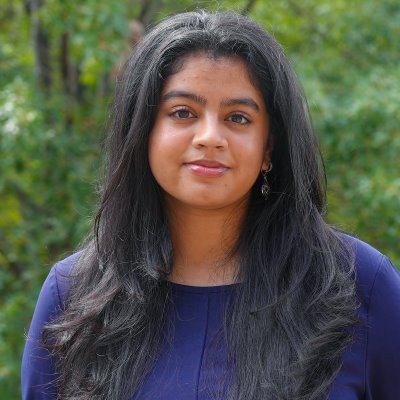Fall 2025 Winner of the Aspiring Professionals Scholarship
Anagha Menon
Anagha reflects on her journey of releasing the pressure to be responsible for everything. Over time, she implemented intentional habits that help her show up as her best self. Congratulations, Anagha, we are excited to see all you will continue to accomplish!

Read her essay here
Being the eldest daughter in an immigrant household came with no blueprint—just expectations. I was the test run for every decision, the one who filled out forms no one else could read, who made mistakes that would later become lessons for my younger sister. I was praised for being independent, but in truth, I often felt alone. Navigating academics, mental health, and identity at the same time felt like running three races with no finish line in sight. At home, achievement was the language of love. Admitting I was struggling felt like speaking a language no one understood.
This challenge wasn’t loud or dramatic. It built slowly, showing up in the form of burnout, isolation, and the quiet pressure to always be “on.” I learned early that asking for help meant risking the image of being put-together. I thought if I just pushed through, worked harder, and stayed organized, I could outrun the exhaustion. But during my first year of college, that entire mindset unraveled. I had taken on too much: five classes, multiple leadership roles, a job, and the invisible full-time role of being the bridge between my family and the world they were still learning to navigate. Somewhere between coding assignments and helping my parents with taxes, I realized I was completely overwhelmed—and no one had noticed. I had made my own struggle invisible.
Admitting I needed support felt like failure. But doing it anyway became one of the most transformative moments of my life. I started going to therapy. I learned how to ask professors questions without apology. I opened up to friends instead of hiding behind humor. I learned how to rest, how to say no, and how to separate being responsible from being responsible for everything. That shift—from hyper-independence to intentional interdependence—did not make me weaker. It made me strategic. It made me honest. And it made me a better leader.
Now, as someone with a passion for both public impact and creative systems, I see how that experience prepared me to think like an entrepreneur. The best entrepreneurs aren’t the ones with all the answers—they’re the ones who learn how to ask the right questions, stay curious under pressure, and pivot without shame. Entrepreneurship is about resilience, but not in the “push through and suffer” kind of way I used to believe in. It’s about adaptive resilience—the kind that makes space for mistakes, feedback, reflection, and growth.
I’ve learned how to build systems that are human, how to make decisions with empathy and precision, and how to lead without relying on control. I’ve seen how the pressure to be everything for everyone leads to burnout, and how sustainable innovation only happens when you prioritize clarity, boundaries, and collaboration. My personal challenge taught me how to protect my energy while still giving generously. It taught me that leadership is not about perfection. It’s about presence.
This mindset has shaped every project I’ve taken on since. As a Peer Leader at UGA, I now mentor first-year students who remind me so much of myself—eager, nervous, and unsure where to begin. I show up for them the way I once needed someone to show up for me: consistently, gently, and without expecting them to have it all figured out. As a Teaching Assistant for an Information Systems course, I’ve taken the role of a guide rather than a gatekeeper. I want students to see learning as accessible, not intimidating. And in my work with service organizations like AYUDH and Campus Kitchen, I apply that same approach—asking what’s missing, what could be better, and how we can build something meaningful without needing to be flashy.
I used to think entrepreneurship was about being bold, decisive, and always sure of yourself. Now I know that being a good entrepreneur starts with being a good listener. With understanding yourself first. With seeing a system’s gaps and not rushing to patch them, but studying why they’re there in the first place. That is what my personal challenge gave me. Not just resilience—but intention. Not just leadership—but awareness.
I became the blueprint I once looked for. And now I’m ready to build things that help others do the same.


